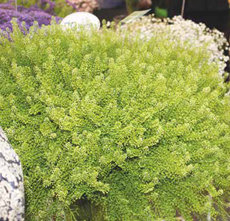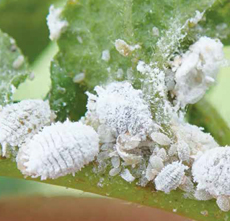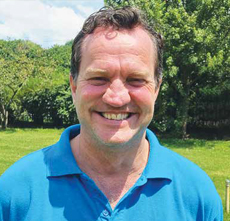Featured Articles
Featured Articles Jan - Feb 2024
Summer Flowers Bandwagon
 Kenya’s flower industry has long been known for its significant contribution to the global floral export market, primarily centered around the cultivation of roses and other flowers that thrive in the country’s mild and favorable climate. However, there’s currently a noticeable shift occurring within the industry as Kenya embraces the cultivation of summer flowers, marking a promising expansion in its floral portfolio. Thanks to its abundant sunshine and conducive climate, Kenya is now venturing into year-round summer flower cultivation.
Kenya’s flower industry has long been known for its significant contribution to the global floral export market, primarily centered around the cultivation of roses and other flowers that thrive in the country’s mild and favorable climate. However, there’s currently a noticeable shift occurring within the industry as Kenya embraces the cultivation of summer flowers, marking a promising expansion in its floral portfolio. Thanks to its abundant sunshine and conducive climate, Kenya is now venturing into year-round summer flower cultivation.
The remarkable growth of Kenya’s flower industry can be attributed to a combination of factors, including the country’s climate, fertile soils, and the dedication and expertise of its flower growers. Historically, the industry’s focus has revolved around flowers such as roses, carnations, and lilies, with roses taking a dominant position. Nonetheless, the landscape is evolving as an increasing number of small-scale growers recognize the beauty, quality, and profitability of summer flowers, which can complement traditional rose bouquets. Unlike Northern Europe, where summer flowers are typically grown during the summer months, Kenya’s climate allows them to thrive throughout the year.
The impetus behind the cultivation of summer flowers in Kenya is palpable, with growers increasingly drawn to these captivating blooms.
Blossoming Love: Here Comes Valentine’s Day 2024
 By Mary Mwende
By Mary Mwende
As we approach the month of February, Kenya’s vibrant floriculture industry gears up for the grand crescendo of love – Valentine’s Day. Kenya, often referred to as the “Flower of Africa,” stands proud as a floral powerhouse. Blessed with a favorable climate and diverse landscapes, the country’s floriculture sector plays a pivotal role in the global flower trade. Roses, lilies, carnations, and orchids – Kenya’s flower farms cultivate a stunning array of blooms that embody the essence of love.
The journey begins months before Valentine’s Day, as flower farms across the country kick into high gear. The meticulous cultivation of flowers requires careful planning to ensure an abundant supply for the surge in demand during the romantic season. Growers implement innovative techniques and cuttingedge technologies to nurture the finest blooms that will find their way into countless bouquets exchanged on February 14th.
Investing in 2024: The Road to Financial Success
 Welcome to the exciting financial journey of 2024! It’s a ride full of possibilities for savvy investors like you. Picture this: smart investing in 2024 goes beyond the usual. We’re talking artificial intelligence, blockchain, and more! This guide is your ticket to manoeuvring through the financial twists and turns.
Welcome to the exciting financial journey of 2024! It’s a ride full of possibilities for savvy investors like you. Picture this: smart investing in 2024 goes beyond the usual. We’re talking artificial intelligence, blockchain, and more! This guide is your ticket to manoeuvring through the financial twists and turns.
Here’s the scoop: stay in the know, and adapt to trends. Think beyond the usual—sustainability and social responsibility are the new cool. With global shifts and tech magic, we’ll show you how to ride the waves. Get ready for a ride where adaptability, innovation, and a bit of strategy lead the way. Let’s dive into the world of smart investing in 2024!
Embrace Technological Innovation
In the fast-paced world of finance, technology is king. From blockchain to artificial intelligence, staying ahead of the curve is crucial. Look for companies leveraging cutting-edge technologies, which will likely be tomorrow’s gamechangers. Tech-driven investments provide growth potential and position your portfolio for resilience in an increasingly digital world.
Keep an Eye on Inflation
Inflation can erode the purchasing power of your money. In 2024, with economic shifts and changing policies, keeping a vigilant eye on inflation is crucial. Invest in assets that historically perform well during inflationary periods, such as real estate and commodities. By staying proactive, you can safeguard your portfolio against the erosive effects of rising prices. In addition to monitoring inflation, starting an emergency fund is essential. Step in achieving financial security.
Tackling Mealybug Infestations for Optimal Cut Flower Cultivation
 Cut flower cultivation is an art that demands meticulous care and attention to detail. Whether you are a professional floriculturist or an avid hobbyist, the joy of cultivating vibrant, blooming flowers is unparalleled. However, like any other form of agriculture, cut flower growing comes with its own set of challenges, and one persistent problem that often plagues flower growers is the infestation of mealybugs.
Cut flower cultivation is an art that demands meticulous care and attention to detail. Whether you are a professional floriculturist or an avid hobbyist, the joy of cultivating vibrant, blooming flowers is unparalleled. However, like any other form of agriculture, cut flower growing comes with its own set of challenges, and one persistent problem that often plagues flower growers is the infestation of mealybugs.
Mealybugs, members of the Pseudococcidae family, are small, softbodied insects that feed on the sap of plants. These pests can wreak havoc on cut flower crops, causing stunted growth, distorted blooms, and even transmitting plant diseases.
Understanding Mealybugs
Mealybugs are a common menace in horticulture, affecting a wide range of plants, including popular cut flower varieties. These tiny insects have a soft, cottony appearance, often resembling small tufts of cotton or white powder. Mealybugs feed on plant sap by inserting their needlelike mouthparts into plant tissues, extracting nutrients and causing damage in the process.
One of the challenges posed by mealybugs is their rapid reproduction. Female mealybugs can lay hundreds of eggs, leading to exponential population growth if left unchecked. Additionally, mealybugs excrete a sticky substance known as honeydew, which promotes the growth of sooty mold, further compromising the health of the host plant.
Read more: Tackling Mealybug Infestations for Optimal Cut Flower Cultivation
Hamish Ker Appointed as Andermatt Kenya’s CEO
 Hamish Ker has been appointed as Andermatt Kenya’s Chief Executive Officer, effective 1st December 2023. “We have an opportunity to help our customers meet the demands of biological solutions and we are excited to welcome Hamish to the team!” the Andermatt team says.
Hamish Ker has been appointed as Andermatt Kenya’s Chief Executive Officer, effective 1st December 2023. “We have an opportunity to help our customers meet the demands of biological solutions and we are excited to welcome Hamish to the team!” the Andermatt team says.
“We want to thank Stephen Musyoka, who has been instrumental in establishing Andermatt Kenya as a going concern since inception these past four years – as an early adopter and pioneer of biological farming solutions in Kenya.”
“Stephen has assisted in positioning Andermatt business for future growth/ development in 2024 and beyond. We are grateful for Stephen’s contributions to Andermatt and the impact we created together over the last four years. Stephen will take up a new role within the company as General Manager, Macrobial business. With the development of the Andermatt footprint in Kenya and the continued investment in our macrobial production capacity we are confident of the growing role Andermatt must play in the rapidly growing demand for Healthy Food and Healthy Environment for all!”
Andermatt’s Journey in Africa
Healthy Food and Healthy Environment for all, speaks directly to Africa and her people.
Andermatt’s vision in Africa is focused on feeding the continent sustainably, as well as strengthening local economies through the export of high-quality, residue-free, healthy food.
South African based Andermatt Madumbi and Andermatt PHP, are recognised as well established, market leaders in the distribution and manufacture of quality biological solutions.


